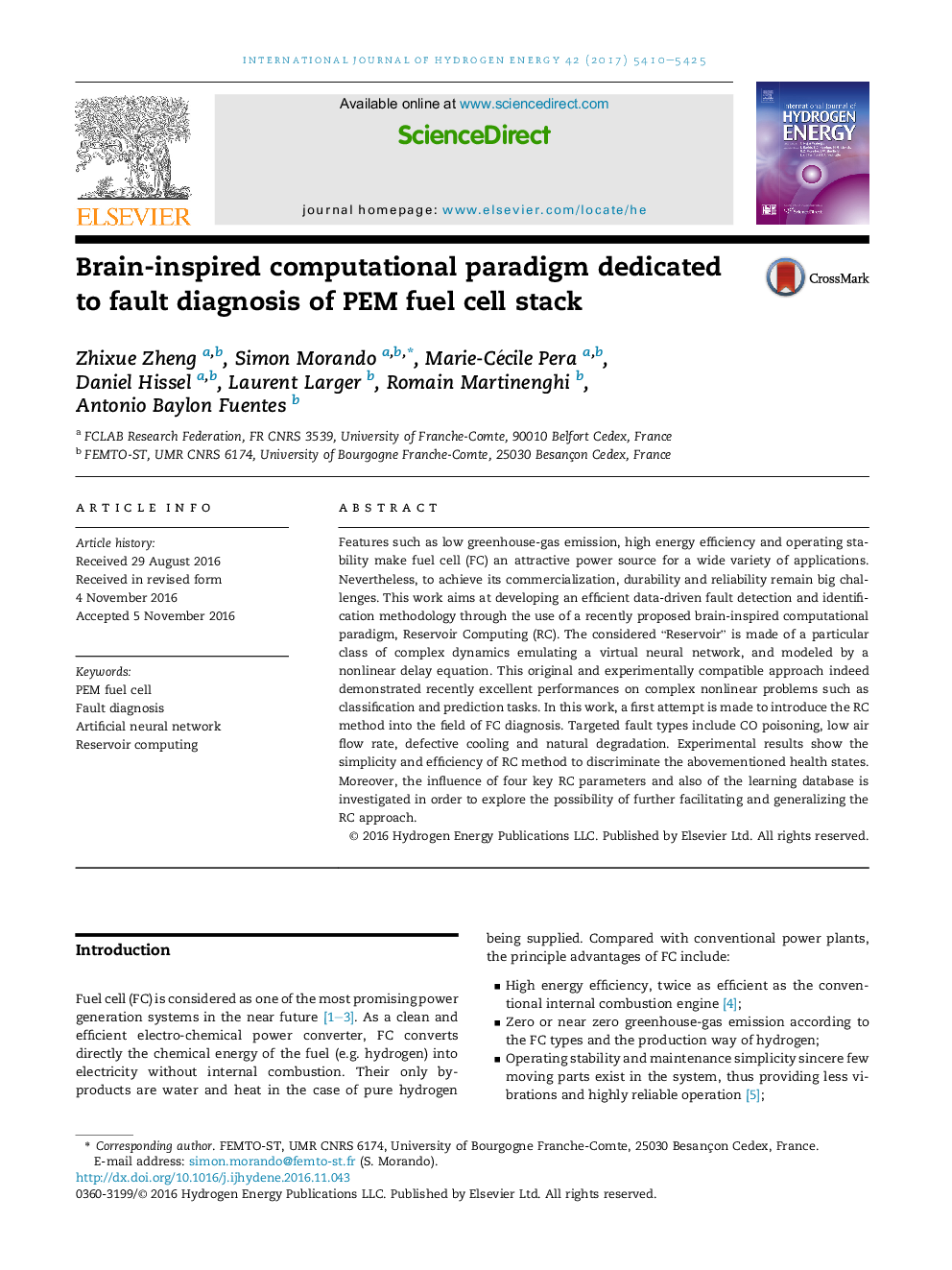| Article ID | Journal | Published Year | Pages | File Type |
|---|---|---|---|---|
| 5148416 | International Journal of Hydrogen Energy | 2017 | 16 Pages |
Abstract
Features such as low greenhouse-gas emission, high energy efficiency and operating stability make fuel cell (FC) an attractive power source for a wide variety of applications. Nevertheless, to achieve its commercialization, durability and reliability remain big challenges. This work aims at developing an efficient data-driven fault detection and identification methodology through the use of a recently proposed brain-inspired computational paradigm, Reservoir Computing (RC). The considered “Reservoir” is made of a particular class of complex dynamics emulating a virtual neural network, and modeled by a nonlinear delay equation. This original and experimentally compatible approach indeed demonstrated recently excellent performances on complex nonlinear problems such as classification and prediction tasks. In this work, a first attempt is made to introduce the RC method into the field of FC diagnosis. Targeted fault types include CO poisoning, low air flow rate, defective cooling and natural degradation. Experimental results show the simplicity and efficiency of RC method to discriminate the abovementioned health states. Moreover, the influence of four key RC parameters and also of the learning database is investigated in order to explore the possibility of further facilitating and generalizing the RC approach.
Related Topics
Physical Sciences and Engineering
Chemistry
Electrochemistry
Authors
Zhixue Zheng, Simon Morando, Marie-Cécile Pera, Daniel Hissel, Laurent Larger, Romain Martinenghi, Antonio Baylon Fuentes,
